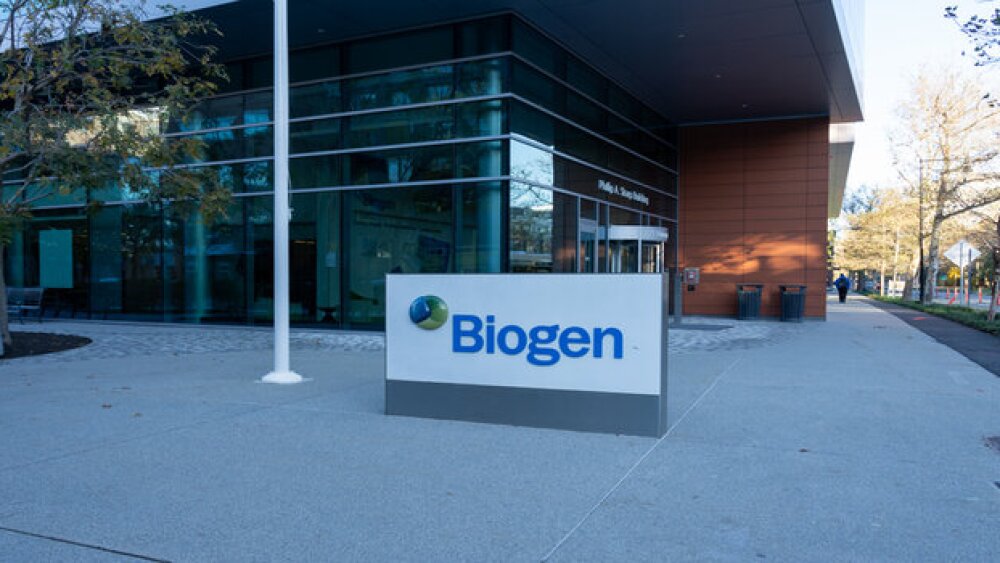- Evaluation of IPI-549 as a monotherapy continuing, with combination portion of Phase 1 study expected to begin this fall
- Study to evaluate potential of IPI-549 plus Opdivo to target immune-suppressive cells in the tumor microenvironment
CAMBRIDGE, Mass. & NEW YORK--(BUSINESS WIRE)--Bristol-Myers Squibb Company (NYSE: BMY) and Infinity Pharmaceuticals, Inc. (NASDAQ: INFI) today announced a clinical trial collaboration to evaluate Bristol-Myers Squibb’s Opdivo in combination with Infinity’s IPI-549 in patients with advanced solid tumors. The dose-escalation portion exploring IPI-549 as a monotherapy in Infinity’s Phase 1 study is continuing, and the first dose-escalation cohort studying IPI-549 in combination with Opdivo, a PD-1 immune checkpoint inhibitor, is expected to begin this fall. IPI-549 is an oral immuno-oncology development candidate that is designed to selectively inhibit phosphoinositide-3-kinase (PI3K)-gamma and is the only investigational PI3K-gamma inhibitor in clinical development.
Preclinical data suggest that IPI-549 may enhance the effects of checkpoint inhibitors and may also reverse tumor resistance to checkpoint inhibitors by targeting immune cells and altering the immune-suppressive microenvironment, promoting an anti-tumor immune response. Opdivo is designed to overcome immune suppression. The combination phase of this ongoing Phase 1 study in patients with advanced solid tumors will explore the potential of combining these two agents to drive improved and sustained efficacy and tolerability above the current standard of care by targeting the immune-suppressive cells in the tumor microenvironment.
“Targeting the tumor microenvironment is an important part of our Immuno-Oncology strategy as we continue to advance research for cancers with limited treatment options,” stated Fouad Namouni, M.D., Head of Oncology Development, Bristol-Myers Squibb. “Our agreement with Infinity builds on our continued focus to bring forward potential novel combination treatment options for patients with cancer.”
“We are excited to explore the potential clinical benefits of combining IPI-549 with Opdivo in the next phase of our ongoing Phase 1 study, which is expected to begin this fall,” stated Julian Adams, president of research and development at Infinity. “Our preclinical research demonstrates that IPI-549 may enhance the effects of and reverse tumor resistance to checkpoint inhibitors, providing a strong rationale for evaluating this combination in patients with advanced forms of solid tumors.”
The ongoing Phase 1 clinical study of IPI-549 is designed to explore the activity, safety, tolerability, pharmacokinetics and pharmacodynamics of IPI-549 as a monotherapy and in combination with Opdivo in approximately 175 patients with advanced solid tumors. Once the dose-escalation phase evaluating Opdivo plus IPI-549 is completed, an expansion phase is planned to evaluate the combination in patients with selected solid tumors, including non-small cell lung cancer (NSCLC), melanoma and squamous cell carcinoma of the head and neck (SCCHN).
Although there has been great progress in the treatment of cancer, there remains a need for additional treatment options. NSCLC, melanoma and SCCHN, which will comprise three of the expansion cohorts in this Phase 1 study, account for more than 17 percent of all new cancer cases in the U.S.
Opdivo was the first PD-1 immune checkpoint inhibitor to receive regulatory approval anywhere in the world in July 2014, and currently has regulatory approval in 54 countries including the United States, Japan, and in the European Union.
About IPI-549
IPI-549 is an investigational, orally administered immuno-oncology development candidate that is designed to selectively inhibit PI3K-gamma. In preclinical studies, IPI-549 inhibited immune suppressive macrophages within the tumor microenvironment, whereas other immunotherapies such as checkpoint modulators more directly target immune effector cell function. As such, IPI-549 represents a potentially complementary approach to restoring anti-tumor immunity in combination with other immunotherapies such as checkpoint inhibitors. IPI-549 is an investigational compound and its safety and efficacy has not been evaluated by the U.S. Food and Drug Administration or any other health authority.
Bristol-Myers Squibb & Immuno-Oncology: Advancing Oncology Research
At Bristol-Myers Squibb, we have a vision for the future of cancer care that is focused on Immuno-Oncology, now considered a major treatment choice alongside surgery, radiation, chemotherapy and targeted therapies for certain types of cancer.
We have a comprehensive clinical portfolio of investigational and approved Immuno-Oncology agents, many of which were discovered and developed by our scientists. Our ongoing Immuno-Oncology clinical program is looking at broad patient populations, across multiple solid tumors and hematologic malignancies, and lines of therapy and histologies, with the intent of powering our trials for overall survival and other important measures like durability of response. We pioneered the research leading to the first regulatory approval for the combination of two Immuno-Oncology agents and continue to study the role of combinations in cancer.
We are also investigating other immune system pathways in the treatment of cancer including CTLA-4, CD-137, KIR, SLAMF7, PD-1, GITR, CSF1R, IDO and LAG-3. These pathways may lead to potential new treatment options – in combination or monotherapy – to help patients fight different types of cancers.
Our collaboration with academia, as well as small and large biotech and pharmaceutical companies, to research the potential of Immuno-Oncology and non-Immuno-Oncology combinations helps achieve our goal of providing new treatment options in clinical practice.
At Bristol-Myers Squibb, we are committed to changing survival expectations in hard-to-treat cancers and the way patients live with cancer.
About Opdivo
Cancer cells may exploit “regulatory” pathways, such as checkpoint pathways, to hide from the immune system and shield the tumor from immune attack. Opdivo is a PD-1 immune checkpoint inhibitor that binds to the checkpoint receptor PD-1 expressed on activated T-cells, and blocks the binding of PD-L1 and PD-L2, preventing the PD-1 pathway’s suppressive signaling on the immune system, including the interference with an anti-tumor immune response.
Opdivo’s broad global development program is based on Bristol-Myers Squibb’s understanding of the biology behind Immuno-Oncology. Our company is at the forefront of researching the potential of Immuno-Oncology to extend survival in hard-to-treat cancers. This scientific expertise serves as the basis for the Opdivo development program, which includes a broad range of Phase 3 clinical trials evaluating overall survival as the primary endpoint across a variety of tumor types. The Opdivo trials have also contributed toward the clinical and scientific understanding of the role of biomarkers and how patients may benefit from Opdivo across the continuum of PD-L1 expression. To date, the Opdivo clinical development program has enrolled more than 18,000 patients.
U.S. INDICATIONS & IMPORTANT SAFETY INFORMATION
INDICATIONS
OPDIVO® (nivolumab) as a single agent is indicated for the treatment of patients with BRAF V600 mutation-positive unresectable or metastatic melanoma. This indication is approved under accelerated approval based on progression-free survival. Continued approval for this indication may be contingent upon verification and description of clinical benefit in the confirmatory trials.
OPDIVO® (nivolumab) as a single agent is indicated for the treatment of patients with BRAF V600 wild-type unresectable or metastatic melanoma.
OPDIVO® (nivolumab), in combination with YERVOY® (ipilimumab), is indicated for the treatment of patients with unresectable or metastatic melanoma. This indication is approved under accelerated approval based on progression-free survival. Continued approval for this indication may be contingent upon verification and description of clinical benefit in the confirmatory trials.
OPDIVO® (nivolumab) is indicated for the treatment of patients with metastatic non-small cell lung cancer (NSCLC) with progression on or after platinum-based chemotherapy. Patients with EGFR or ALK genomic tumor aberrations should have disease progression on FDA-approved therapy for these aberrations prior to receiving OPDIVO.
OPDIVO® (nivolumab) is indicated for the treatment of patients with advanced renal cell carcinoma (RCC) who have received prior anti-angiogenic therapy.
OPDIVO® (nivolumab) is indicated for the treatment of patients with classical Hodgkin lymphoma (cHL) that has relapsed or progressed after autologous hematopoietic stem cell transplantation (HSCT) and post-transplantation brentuximab vedotin. This indication is approved under accelerated approval based on overall response rate. Continued approval for this indication may be contingent upon verification and description of clinical benefit in confirmatory trials.
Please refer to the end of the Important Safety Information for a brief description of the patient populations studied in the Checkmate trials.
IMPORTANT SAFETY INFORMATION
WARNING: IMMUNE-MEDIATED ADVERSE REACTIONS
YERVOY can result in severe and fatal immune-mediated adverse reactions. These immune-mediated reactions may involve any organ system; however, the most common severe immune-mediated adverse reactions are enterocolitis, hepatitis, dermatitis (including toxic epidermal necrolysis), neuropathy, and endocrinopathy. The majority of these immune-mediated reactions initially manifested during treatment; however, a minority occurred weeks to months after discontinuation of YERVOY.
Assess patients for signs and symptoms of enterocolitis, dermatitis, neuropathy, and endocrinopathy and evaluate clinical chemistries including liver function tests (LFTs), adrenocorticotropic hormone (ACTH) level, and thyroid function tests at baseline and before each dose.
Permanently discontinue YERVOY and initiate systemic high-dose corticosteroid therapy for severe immune-mediated reactions.
Immune-Mediated Pneumonitis
OPDIVO can cause immune-mediated pneumonitis. Fatal cases have been reported. Monitor patients for signs with radiographic imaging and for symptoms of pneumonitis. Administer corticosteroids for Grade 2 or more severe pneumonitis. Permanently discontinue for Grade 3 or 4 and withhold until resolution for Grade 2. In patients receiving OPDIVO monotherapy, fatal cases of immune-mediated pneumonitis have occurred. Immune-mediated pneumonitis occurred in 3.1% (61/1994) of patients. In patients receiving OPDIVO with YERVOY, immune-mediated pneumonitis occurred in 6% (25/407) of patients.
In Checkmate 205 and 039, pneumonitis, including interstitial lung disease, occurred in 4.9% (13/263) of patients receiving OPDIVO. Immune-mediated pneumonitis occurred in 3.4% (9/263) of patients receiving OPDIVO: Grade 3 (n=1) and Grade 2 (n=8).
Immune-Mediated Colitis
OPDIVO can cause immune-mediated colitis. Monitor patients for signs and symptoms of colitis. Administer corticosteroids for Grade 2 (of more than 5 days duration), 3, or 4 colitis. Withhold OPDIVO monotherapy for Grade 2 or 3 and permanently discontinue for Grade 4 or recurrent colitis upon re-initiation of OPDIVO. When administered with YERVOY, withhold OPDIVO and YERVOY for Grade 2 and permanently discontinue for Grade 3 or 4 or recurrent colitis. In patients receiving OPDIVO monotherapy, immune-mediated colitis occurred in 2.9% (58/1994) of patients. In patients receiving OPDIVO with YERVOY, immune-mediated colitis occurred in 26% (107/407) of patients including three fatal cases.
In a separate Phase 3 study of YERVOY 3 mg/kg, severe, life-threatening, or fatal (diarrhea of =7 stools above baseline, fever, ileus, peritoneal signs; Grade 3-5) immune-mediated enterocolitis occurred in 34 (7%) patients. Across all YERVOY-treated patients in that study (n=511), 5 (1%) developed intestinal perforation, 4 (0.8%) died as a result of complications, and 26 (5%) were hospitalized for severe enterocolitis.
Immune-Mediated Hepatitis
OPDIVO can cause immune-mediated hepatitis. Monitor patients for abnormal liver tests prior to and periodically during treatment. Administer corticosteroids for Grade 2 or greater transaminase elevations. Withhold for Grade 2 and permanently discontinue for Grade 3 or 4 immune-mediated hepatitis. In patients receiving OPDIVO monotherapy, immune-mediated hepatitis occurred in 1.8% (35/1994) of patients. In patients receiving OPDIVO with YERVOY, immune-mediated hepatitis occurred in 13% (51/407) of patients.
In a separate Phase 3 study of YERVOY 3 mg/kg, severe, life-threatening, or fatal hepatotoxicity (AST or ALT elevations >5x the ULN or total bilirubin elevations >3x the ULN; Grade 3-5) occurred in 8 (2%) patients, with fatal hepatic failure in 0.2% and hospitalization in 0.4%.
Immune-Mediated Neuropathies
In a separate Phase 3 study of YERVOY 3 mg/kg, 1 case of fatal Guillain-Barré syndrome and 1 case of severe (Grade 3) peripheral motor neuropathy were reported.
Immune-Mediated Endocrinopathies
OPDIVO can cause immune-mediated hypophysitis, immune-mediated adrenal insufficiency, autoimmune thyroid disorders, and Type 1 diabetes mellitus. Monitor patients for signs and symptoms of hypophysitis, signs and symptoms of adrenal insufficiency, thyroid function prior to and periodically during treatment, and hyperglycemia. Administer hormone replacement as clinically indicated and corticosteroids for Grade 2 or greater hypophysitis. Withhold for Grade 2 or 3 and permanently discontinue for Grade 4 hypophysitis. Administer corticosteroids for Grade 3 or 4 adrenal insufficiency. Withhold for Grade 2 and permanently discontinue for Grade 3 or 4 adrenal insufficiency. Administer hormone-replacement therapy for hypothyroidism. Initiate medical management for control of hyperthyroidism. Withhold OPDIVO for Grade 3 and permanently discontinue for Grade 4 hyperglycemia.
In patients receiving OPDIVO monotherapy, hypophysitis occurred in 0.6% (12/1994) of patients. In patients receiving OPDIVO with YERVOY, hypophysitis occurred in 9% (36/407) of patients. In patients receiving OPDIVO monotherapy, adrenal insufficiency occurred in 1% (20/1994) of patients. In patients receiving OPDIVO with YERVOY, adrenal insufficiency occurred in 5% (21/407) of patients. In patients receiving OPDIVO monotherapy, hypothyroidism or thyroiditis resulting in hypothyroidism occurred in 9% (171/1994) of patients. Hyperthyroidism occurred in 2.7% (54/1994) of patients receiving OPDIVO monotherapy. In patients receiving OPDIVO with YERVOY, hypothyroidism or thyroiditis resulting in hypothyroidism occurred in 22% (89/407) of patients. Hyperthyroidism occurred in 8% (34/407) of patients receiving OPDIVO with YERVOY. In patients receiving OPDIVO monotherapy, diabetes occurred in 0.9% (17/1994) of patients. In patients receiving OPDIVO with YERVOY, diabetes occurred in 1.5% (6/407) of patients.
In a separate Phase 3 study of YERVOY 3 mg/kg, severe to life-threatening immune-mediated endocrinopathies (requiring hospitalization, urgent medical intervention, or interfering with activities of daily living; Grade 3-4) occurred in 9 (1.8%) patients. All 9 patients had hypopituitarism, and some had additional concomitant endocrinopathies such as adrenal insufficiency, hypogonadism, and hypothyroidism. 6 of the 9 patients were hospitalized for severe endocrinopathies.
Immune-Mediated Nephritis and Renal Dysfunction
OPDIVO can cause immune-mediated nephritis. Monitor patients for elevated serum creatinine prior to and periodically during treatment. Administer corticosteroids for Grades 2-4 increased serum creatinine. Withhold OPDIVO for Grade 2 or 3 and permanently discontinue for Grade 4 increased serum creatinine. In patients receiving OPDIVO monotherapy, immune-mediated nephritis and renal dysfunction occurred in 1.2% (23/1994) of patients. In patients receiving OPDIVO with YERVOY, immune-mediated nephritis and renal dysfunction occurred in 2.2% (9/407) of patients.
Immune-Mediated Skin Adverse Reactions and Dermatitis
OPDIVO can cause immune-mediated rash, including Stevens-Johnson syndrome (SJS) and toxic epidermal necrolysis (TEN), some cases with fatal outcome. Administer corticosteroids for Grade 3 or 4 rash. Withhold for Grade 3 and permanently discontinue for Grade 4 rash. For symptoms or signs of SJS or TEN, withhold OPDIVO and refer the patient for specialized care for assessment and treatment; if confirmed, permanently discontinue. In patients receiving OPDIVO monotherapy, immune-mediated rash occurred in 9% (171/1994) of patients. In patients receiving OPDIVO with YERVOY, immune-mediated rash occurred in 22.6% (92/407) of patients.
In a separate Phase 3 study of YERVOY 3 mg/kg, severe, life-threatening, or fatal immune-mediated dermatitis (eg, Stevens-Johnson syndrome, toxic epidermal necrolysis, or rash complicated by full thickness dermal ulceration, or necrotic, bullous, or hemorrhagic manifestations; Grade 3-5) occurred in 13 (2.5%) patients. 1 (0.2%) patient died as a result of toxic epidermal necrolysis. 1 additional patient required hospitalization for severe dermatitis.
Immune-Mediated Encephalitis
OPDIVO can cause immune-mediated encephalitis. Evaluation of patients with neurologic symptoms may include, but not be limited to, consultation with a neurologist, brain MRI, and lumbar puncture. Withhold OPDIVO in patients with new-onset moderate to severe neurologic signs or symptoms and evaluate to rule out other causes. If other etiologies are ruled out, administer corticosteroids and permanently discontinue OPDIVO for immune-mediated encephalitis. In patients receiving OPDIVO monotherapy, encephalitis occurred in 0.2% (3/1994) of patients. Fatal limbic encephalitis occurred in one patient after 7.2 months of exposure despite discontinuation of OPDIVO and administration of corticosteroids. Encephalitis occurred in one patient receiving OPDIVO with YERVOY (0.2%) after 1.7 months of exposure.
Other Immune-Mediated Adverse Reactions
Based on the severity of adverse reaction, permanently discontinue or withhold treatment, administer high-dose corticosteroids, and, if appropriate, initiate hormone-replacement therapy. Across clinical trials of OPDIVO the following clinically significant immune-mediated adverse reactions occurred in <1.0% of patients receiving OPDIVO: uveitis, iritis, pancreatitis, facial and abducens nerve paresis, demyelination, polymyalgia rheumatica, autoimmune neuropathy, Guillain-Barré syndrome, hypopituitarism, systemic inflammatory response syndrome, gastritis, duodenitis, sarcoidosis, histiocytic necrotizing lymphadenitis (Kikuchi lymphadenitis), myositis, myocarditis, rhabdomyolysis, motor dysfunction, vasculitis, and myasthenic syndrome.
Infusion Reactions
OPDIVO can cause severe infusion reactions, which have been reported in <1.0% of patients in clinical trials. Discontinue OPDIVO in patients with Grade 3 or 4 infusion reactions. Interrupt or slow the rate of infusion in patients with Grade 1 or 2. In patients receiving OPDIVO monotherapy, infusion-related reactions occurred in 6.4% (127/1994) of patients. In patients receiving OPDIVO with YERVOY, infusion-related reactions occurred in 2.5% (10/407) of patients.
Complications of Allogeneic HSCT after OPDIVO
Complications, including fatal events, occurred in patients who received allogeneic HSCT after OPDIVO. Outcomes were evaluated in 17 patients from Checkmate 205 and 039, who underwent allogeneic HSCT after discontinuing OPDIVO (15 with reduced-intensity conditioning, 2 with myeloablative conditioning). Thirty-five percent (6/17) of patients died from complications of allogeneic HSCT after OPDIVO. Five deaths occurred in the setting of severe or refractory GVHD. Grade 3 or higher acute GVHD was reported in 29% (5/17) of patients. Hyperacute GVHD was reported in 20% (n=2) of patients. A steroid-requiring febrile syndrome, without an identified infectious cause, was reported in 35% (n=6) of patients. Two cases of encephalitis were reported: Grade 3 (n=1) lymphocytic encephalitis without an identified infectious cause, and Grade 3 (n=1) suspected viral encephalitis. Hepatic veno-occlusive disease (VOD) occurred in one patient, who received reduced-intensity conditioned allogeneic HSCT and died of GVHD and multi-organ failure. Other cases of hepatic VOD after reduced-intensity conditioned allogeneic HSCT have also been reported in patients with lymphoma who received a PD-1 receptor blocking antibody before transplantation. Cases of fatal hyperacute GVHD have also been reported. These complications may occur despite intervening therapy between PD-1 blockade and allogeneic HSCT.
Follow patients closely for early evidence of transplant-related complications such as hyperacute GVHD, severe (Grade 3 to 4) acute GVHD, steroid-requiring febrile syndrome, hepatic VOD, and other immune-mediated adverse reactions, and intervene promptly.
Embryo-Fetal Toxicity
Based on their mechanisms of action, OPDIVO and YERVOY can cause fetal harm when administered to a pregnant woman. Advise pregnant women of the potential risk to a fetus. Advise females of reproductive potential to use effective contraception during treatment with an OPDIVO- or YERVOY- containing regimen and for at least 5 months after the last dose of OPDIVO.
Lactation
It is not known whether OPDIVO or YERVOY is present in human milk. Because many drugs, including antibodies, are excreted in human milk and because of the potential for serious adverse reactions in nursing infants from an OPDIVO-containing regimen, advise women to discontinue breastfeeding during treatment. Advise women to discontinue nursing during treatment with YERVOY and for 3 months following the final dose.
Serious Adverse Reactions
For full article, please click here.



